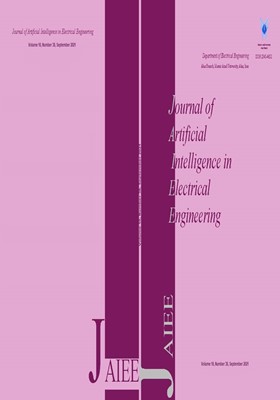A Risk-Averse Energy Management in Micro-grids on Information Gap Decision Theory Using the Genetic Algorithm
محورهای موضوعی : journal of Artificial Intelligence in Electrical Engineering
Abdolreza Sadighmanesh
1
,
sarang ezazi
2
![]()
1 - Department of Electrical Engineering, Ahar Branch, Islamic Azad University, Ahar, Iran‎
2 - mechanical engineering, Faculty of engineering, IAU-AHAR, Ahar, Iran
کلید واژه: Genetic Algorithm, Energy management, Information gap decision theory, Micro-grids,
چکیده مقاله :
In this paper, energy management in a Micro-grid connected to the distribution network has been done with the aim of reducing the cost of operating the Micro-grids and reducing the environmental pollution index. The Genetic Algorithm method is used to optimize the objective function and find Pareto solutions. The Information Gap Decision-making Method has been used to select the appropriate answers from Pareto's set of answers. In the meanwhile, the participation rate of each of the distributed generator sources and the charge and discharge planning of the energy storage system to provide the Micro-grids load has been calculated. In addition, the interaction between the Micro-grids and the distribution network is important. To analyze the proposed method, a planning problem using multi-priced electricity tariffs is presented as an advantage of the energy storage system. To demonstrate the effectiveness of the multivariate optimization method presented in this thesis, modeling and simulation of diesel generators and energy storage in a Micro-grid have been performed. Mathematical models based on probability density functions, renewable energy sources and consumer load have been investigated. Minimizing the cost of fuel to generate power in the Micro-grids, uncertainty related to renewable sources and Micro-grids load consumption has been modeled using the Information Gap Decision-making Method of maximum uncertainty radius for renewable units and load consumption. The results of the Information Gap Decision Method are compared with conventional methods based on probabilistic function analysis such as the scenario tree method. The results presented in this dissertation show the advantages of the proposed method to improve the overall performance of independent and connected Micro-grids to the distribution network.


